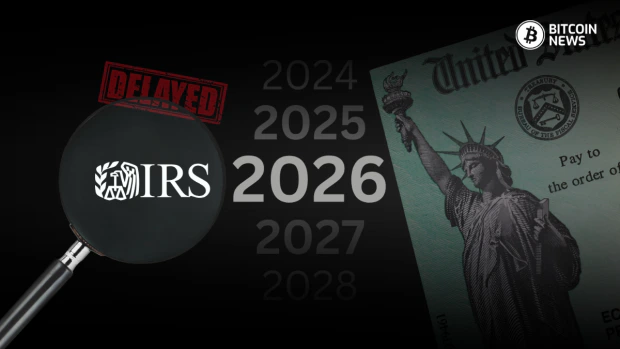The US Internal Revenue Service (IRS) has delayed the new digital asset tax reporting rules by one year. Originally set to activate on January 1, 2025, the new rules will now go into effect on January 1, 2026.
This gives centralized digital asset platforms, brokers and investors more time to adjust to the changes which many thought would have been a nightmare to deal with if implemented too soon.
These new rules aim to identify the cost basis for the transactions performed in bitcoin and other digital assets at centralized digital platforms, such as exchanges.
If an investor sells the bitcoin he owns in the brokerage account, the rules say that a method of accounting should be set by the user, to specify which units are sold first.
In case taxpayers do not choose a method of accounting, then the automatic method that will be adopted is the First In, First Out (FIFO).
FIFO assumes the earliest acquired unit of bitcoin is sold first, which can have a big impact on capital gains tax, especially in a bull market.
According to Shehan Chandrasekera, Head of tax at CoinTracker, “You’d be unintentionally selling the earliest purchased asset (which tends to have the lowest cost basis) first while unknowingly maximizing your capital gains.”
The IRS’s new rules permit taxpayers to select other acceptable accounting methods including Highest in, First Out (HIFO) or Specific Identification (Spec ID).
In Spec ID method, for example, the user decides exactly which units he is planning to sell.
These methods are flexible and may assist investors to reduce tax on their national income. However, most of the centralized finance brokers today do not have the right systems in place to support them. Therefore the shift to 2026 is considered as a viable step.
Chandrasekera described the postponement as “good news for crypto holders”. He says the stay gives brokers long enough to enhance their frameworks to recognize the other accounting models.
This is crucial to reduce tax liabilities and avoid the unintended consequences of the FIFO default method. Chandrasekera added:
“Almost all CeFi brokers were not ready to support Spec ID as of 1/1/25”
One of the biggest problems with the new rules is the use of FIFO as the default method.
Chandrasekera says FIFO will be “catastrophic” for investors in a bull market. By forcing the sale of oldest assets with lower cost basis, investors will have huge tax liabilities.
The announcement of the delay comes as the IRS faces legal action from major digital asset players in the market. On December 28, a number of organizations, including the Blockchain Association, DeFi Education Fund, and Texas Blockchain Council sued the IRS.
Related: Texas Blockchain Council | Texas ‘Will Be Silicon Valley’ of Bitcoin
The lawsuit challenges rules for brokers to submit users’ details and transactions’ histories starting 2027.
The rules themselves have come under tremendous criticism from constitutional purists and others who believe that the IRS and fellow agencies exceed their legal mandate through these rules.
All these reporting requirements would apply to DEXs and brokers, mandating them to report gross proceeds from sales of bitcoin and other digital assets by their customers.
Opponents think these measures violates user privacy and put high costs on the parties involved within the markets.
The one year delay gives brokers time to upgrade and investors time to prepare. Experts recommend that bitcoin investors choose an accounting method as soon as brokers support them.
This temporary relief could also mean that the IRS is admitting that bitcoin taxation is not a simple matter. It may also signal the agency’s understanding that the transition process to the level that is not burdensome to investors and brokers, needs more time.










